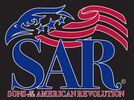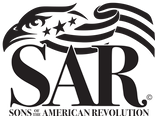|
Notes from the Genealogist General, John Sinks (North Carolina Records)
North Carolina Revolutionary Pay Vouchers. The Revolutionary Pay Vouchers in the North Carolina State Archives provide an important source for evidence of Revolutionary service. Fortunately, images of these vouchers are on line at familysearch.org. They can be found at https://www.familysearch.org/search/collection/1498361 or through a Google search on “North Carolina Revolutionary Pay Vouchers.” Pay vouchers can be searched by name and then browsed moving forward or back from the image on the screen. Although the names are indexed, a spelling variation can result in failure to find any record. One of my ancestors, Isaac Dorris, is indexed with the given name “Is” because a cancelation hole was punched in the voucher through the last part of his first name. A search for Isaac Dorris returns a message that no records were found. Searching just the surname worked. Another way to find vouchers at familysearch.org is to select the Records from the Search drop down menu. Search for the ancestor’s residence for a period that includes the Revolution. North Carolina Records On-Line—State Archives of North Carolina. The North Carolina State Archives has posted some important records on-line. The home page is http://digital.ncdcr.gov/cdm/home Collections important to SAR members and applicants include:
Subcommittee on Revolutionary Tax Lists. The Subcommittee on Revolutionary Tax lists has made an initial determination of which Revolutionary tax lists posted by the State Archives of North Carolina provide evidence of Revolutionary service. The following lists provide evidence of Patriotic Service, excepting those named as tax exempt or charged a penalty for not complying with the law (such as not taking the oath of allegiance or returning an inventory of their taxable property). Three 1779 lists not mandated by a law supporting the Revolution provide indirect evidence that many listed took the oath of allegiance. The Beaufort and Randolph lists identify some as being charged with a three or four times the tax “assessed on persons in this State who comply in every respect with the laws thereof.” Those who did not take the oath of allegiance were among those charged three and four fold the regular rate. The Randolph list identifies various taxpayers as not having taken the oath [of allegiance], as Quakers, or not having “given in” their estate. All of these lists provide indirect evidence that those not singled out took the oath of allegiance. North Carolina Revolutionary Tax Lists at Familysearch.org. I reported in Email #30 that Familysearch was digitizing microfiche and microfilm records. Some Revolutionary tax lists from the Revolutionary period have been converted and are now available on-line. Among these are Pasquotank and Rowan county lists in the State Archives of North Carolina. To locate digitized records available on line at familysearch.org, select Catalogue from the dropdown menu for Search and then select Place. Enter the location you wish to search, such as “United States, North Carolina, Pasquotank” and click Search. You can then scroll to see the various kinds of records for the county. If you click on Taxation, you can see what tax records are available. You may well see an item, “Tax Lists for Various Counties of North Carolina.” The entries here are incomplete. For example, Rowan Revolutionary tax lists are on line, but not named here. Look for an author who would have created the lists, such as “North Carolina. County Court of Pleas and Quarter Sessions (Pasquotank County)” and click on that record. A small camera icon on the right indicates that the record is on line and you can access it by clicking on the name of the record. A small microfilm reel icon indicates the record has not yet been digitized. Many other county records are available on line at familysearch.org and can be found this way. New Version of Application Preparation Manual. A new version of the Application Preparation Manual is now available at sar.org with new changes in red. A link can be found under the Genealogy dropdown menu under Genealogy Policies and Materials, or go to https://members.sar.org/media/uploads/pages/77/hu8LaHnCsV4f.pdf The major change is the addition of about 3 ½ pages on DNA evidence. Spelling of Patriot’s Name. Variation in the spelling of surnames demonstrates the creativity of the Revolutionary generation, but can cause problems for applicants. The Application Preparation Manual states, The Genealogy Staff usually uses the spelling found on the Service record. However, if a different spelling is used, a note needs to be submitted indicating which spelling the Applicant wants on his certificate. [p. 1] I have instructed staff genealogists not to follow automatically the DAR spelling of surnames. DAR, for indexing purposes, has made spellings uniform even if a family never used the spelling they have adopted. My Goodall family of Virginia never spelled the name “Goodale,” but DAR renders it that way without any claim that the spelling is “correct.” The SAR GRS will need to adopt a similar standardization so that users can find all applications concerning a family without having to initiate searches for each reasonable variation of a name. Staffing. Jeff Bell is leaving SAR for the second time. He has assumed a position at Bellarmine University. Jeff worked in several different departments, including Genealogy, since returning from Homeland Security. He continues to work limited hours in Office of the Registrar. The queue. New member applications are now being processed about 6 weeks after they are received at National, and supplements about 17 ½ weeks after they are received. As expected, the backlog that builds after Thanksgiving through the new year is being reduced. |
AuthorThe 'Front Lines' Blog is written and supported by the Fort Dearborn Chapter of the Sons of the American Revolution located in Chicago, IL. Archives
April 2018
Categories |
|
Services
|
Society
|
Support
|

 RSS Feed
RSS Feed
